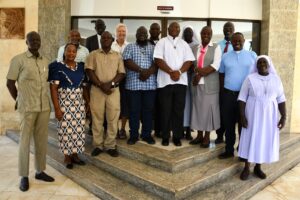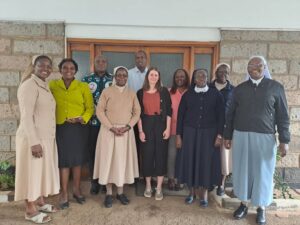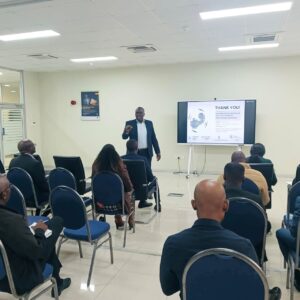KENYA: African Catholic Journalists challenged to Rise-up and Tell the Stories of their continent
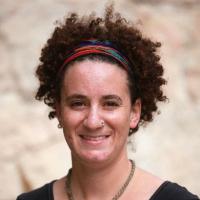
Melanie Lidman, Middle East and Africa Correspondent for Global Sister Report
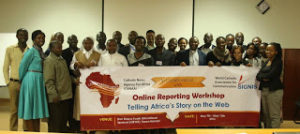
Ms. Melanie Lidman, a Middle East and Africa correspondent for Global Sisters Report (GSR) based in Israel has said that it is time for African Journalists, who are Catholics, to actively tell the Story of the Catholic Church in Africa.
“The Church is growing in Africa and there is a great need to get people from Africa telling the Catholic story from their own perspective and background,” she said via Skype Video conference from Israel while addressing participants of Catholic News Agency for Africa (CANAA) workshop on Online Reporting.
The workshop, which was attended by Catholic Journalists from ten African countries, which included participants from five AMECEA Countries namely Kenya, Uganda, Tanzania, Malawi and Zambia, was held under the theme: “Telling Africa’s Story on the Web. ”The participants comprised of Catholic Journalists working in Catholic Media institution as well as communications students from Tangaza College, a constituent college of the Catholic University of Eastern Africa.
Lidman explained that for a long time, people telling the Catholic story have been from the North, that is Europe and North America. However, with the changing trend of the Church population in the south, there is need for stories to come from the south.

Africa Correspondent for
Global Sister Report
“Ordinary things that happen locally in the dioceses do have global impact and needs to be shared globally. For instance challenges of humanity and how to cope with them are issues that are replicated in many places and when the information is shared, it becomes a source of a much needed solution elsewhere,” Lidman explained adding that Journalists who are Catholics understands the Church hierarchy and functions therefore able to report better.
Meanwhile, the editor of English version of Pambazuka News, which is an online Pan African news services said that it is a sad fact that to date some of the stories about the Catholic Church in Africa are lifted from Europe- or America-based news services.
Mr. Henry Makori, who was one of the facilitators at the same workshop, said that whereas Bishops Conferences and Catholic Religious Congregations have invested in print media and radio, it is not clear why there is reluctance to fully embrace online media. He, however, noted that there are very few up to date websites managed by Church institutions although some of them are well updated.
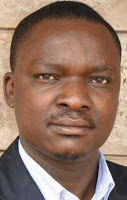
Editor Pambazuka
News English
Version
Makori challenged the Journalists to play a watchdog role to the people by having the value of courage, which enables them to seek and stand for the truth all the time. “Question and correct false narratives about Africa by agitating for people’s rights,” he said adding that it is important to always provide the context by giving a clear picture of the actual situation of the African people because nothing happens in isolation.
He advised the journalists to tell untold stories because in most cases, the Catholic content tends to be very predictable, in most cases focusing on the Church hierarchy while living out vital voices on the ground. Finally he encouraged the participants to avoid lazy journalism whereby they only rely on pastoral letters from the Bishops and other Church authorities.
“The Catholic Church is very rich in content; it is up to you as Catholic journalists to bring that content to the people. Do investigative in-depth reports on cross cutting issues. Do journalism for activism, crusading and championing just courses. Change attitudes and demand accountability from opinion leaders,” he advised.
By Pamela Adinda, AMECEA Online News
